how to apply skin care products
How to Apply Skincare Products
It’s essential to layer skincare products correctly to maximize their effectiveness. Follow the order below to ensure your skin absorbs each product properly:
| Product Type | Why It’s Important |
|---|---|
| 1.Cleanser | Removes impurities and preps skin for treatment. |
| 2.Toner | Balances skin pH and hydrates. |
| 3.Serums (Lightest) | Targeted treatments like vitamin C or hyaluronic acid. |
| 4.Moisturizer | Locks in moisture and supports the skin barrier. |
| 5.Sunscreen (Morning) | Protects against UV damage. |
| 6.Facial Oil (Optional) | Seals everything in, adds an extra layer of hydration. |
By starting with the lightest product and building up to heavier ones, you ensure better absorption and prevent clogging.
First of all….
Let’s be real: the world of skincare can be super confusing! With so many steps and products out there, it’s easy to feel like you need to follow a complicated routine to achieve glowing skin. But here’s the good news: not every step is essential for everyone. The secret to great skincare is understanding what your skin truly needs. Instead of getting caught up in trends, take a moment to figure out what works best for you—whether that’s hydration, acne treatment, or soothing dryness. In this article, we’ll break down some common skincare steps to help you find your perfect fit!
1.Cleanser (Morning/Night): The First Step to Healthy Skin
To get the most out of your skincare routine, always begin with a clean face. Cleansing ensures that dirt, oil, and makeup are removed, allowing the following products to work more effectively. Depending on your skin type, the cleanser you choose is important.
- Dry Skin: Opt for creamy, non-foaming cleansers with hydrating ingredients like ceramides and hyaluronic acid to maintain moisture.
- Oily Skin: Gel-based or gentle foaming cleansers work well to control excess oil without over-drying.
- Acne-Prone Skin: Choose cleansers containing salicylic acid or benzoyl peroxide to help prevent breakouts.
- Sensitive Skin: Soothing formulas with ingredients like colloidal oatmeal and niacinamide will calm irritation while cleansing.
In the evening, if you wear makeup, start with a cleansing oil or balm to melt away makeup, followed by a gentle second cleanse suited to your skin type.
2.Toner (Morning/Night): Preparing Your Skin
Using a toner is an optional step in your skincare routine, but it can significantly enhance your skin’s readiness to absorb the following products. A good toner can help balance your skin’s pH, remove any lingering impurities, and provide an extra layer of hydration.
- Oily/Acne-Prone Skin: Look for toners containing AHAs or BHAs, like salicylic acid or glycolic acid. These ingredients can help exfoliate dead skin cells, clear pores, and reduce the appearance of breakouts.
- Dry/Sensitive Skin: Choose hydrating toners that include ingredients such as glycerin, aloe vera, or rose water. These soothing formulations will help replenish moisture and calm irritation, ensuring your skin feels refreshed and balanced.
Applying toner after cleansing and before serums or moisturizers can significantly improve the effectiveness of your entire skincare routine.
3.Serum (Morning/Night): Targeted Treatment for Your Skin
Serums are concentrated formulations designed to deliver active ingredients deep into the skin, making them an essential part of any skincare routine.
- Morning: Start your day with a Vitamin C serum. This powerful antioxidant helps protect the skin from environmental damage caused by UV rays and pollution. It also brightens the complexion and evens out skin tone, making it an excellent choice for a radiant start to your day.
- Night: At night, focus on hydration with a hyaluronic acid serum. This ingredient attracts and retains moisture in the skin, ensuring you wake up with a plump and dewy complexion. Hyaluronic acid is especially beneficial for all skin types, helping to combat dryness and maintain skin elasticity while you sleep.
Incorporating these serums into your daily routine can significantly enhance your skin’s overall health and appearance.
4.Eye Cream (Morning/Night): Nurturing Your Delicate Eye Area
Eye cream is specifically formulated to address the unique concerns of the skin around the eyes, which is thinner and more sensitive than the rest of your face.
- Morning: Opt for an eye cream with caffeine to tackle puffiness. Caffeine helps constrict blood vessels, reducing swelling and dark circles, giving your eyes a refreshed and alert appearance. This is perfect for those early mornings when you need a little extra boost.
- Night: In the evening, switch to a gentle, hydrating eye cream. Look for ingredients like peptides, hyaluronic acid, or vitamin E to nourish and hydrate the delicate under-eye area. A nighttime formula will help replenish moisture lost throughout the day, supporting the skin’s natural repair process while you sleep.
Using eye cream consistently can help minimize signs of fatigue and aging, keeping your eye area looking bright and youthful.
5.Spot Treatment (Morning/Night): Targeting Specific Skin Concerns
Spot treatments are powerful allies in your skincare routine, designed to address specific issues like acne and dark spots effectively.
- Application Timing: Always apply spot treatment before your moisturizer to ensure direct contact with the affected area for maximum efficacy. This allows the active ingredients to penetrate the skin properly and work their magic.
- Morning and Night for Acne: If you’re dealing with acne, opt for treatments containing benzoyl peroxide or salicylic acid. Benzoyl peroxide works by killing acne-causing bacteria and reducing inflammation, while salicylic acid helps exfoliate the skin and unclog pores. These treatments can be applied directly to the blemish for quick results.
- Dark Spots: For dark spots or hyperpigmentation, look for spot treatments with niacinamide or hydroquinone. Niacinamide helps brighten the skin and even out tone, while hydroquinone is a stronger lightening agent that can significantly reduce the appearance of dark spots over time.
Incorporating spot treatments into your routine can help maintain clearer, more even-toned skin, making them essential for targeting specific concerns.
6.Moisturizer (Morning/Night): Hydrating and Protecting Your Skin
Moisturizing is a vital step in your skincare routine, helping to maintain skin hydration and barrier function.
- Key Ingredients: Choose a moisturizer that contains ceramides and hyaluronic acid. Ceramides help restore the skin barrier and prevent moisture loss, while hyaluronic acid attracts and retains water, keeping your skin plump and hydrated.
- Skin Type Considerations:
- Oily Skin: If you have oily skin, opt for lightweight or gel-based moisturizers. These formulas provide hydration without adding extra oil or clogging pores, helping to balance your skin’s natural oil production.
- Dry Skin: For those with dry skin, cream-based moisturizers are ideal. These thicker, richer formulas deliver intense hydration and nourishment, addressing dryness and promoting a smooth, healthy appearance.
Applying moisturizer both morning and night ensures your skin stays hydrated and protected from environmental stressors, contributing to an overall healthier complexion.
7.Retinol (Night): Your Key to Youthful Skin
Retinol is a powerhouse ingredient in skincare, known for its ability to enhance skin renewal and combat signs of aging.
- Benefits:
- Skin Renewal: Retinol encourages the turnover of skin cells, promoting a smoother and more even complexion.
- Dark Spot Reduction: It helps fade dark spots and hyperpigmentation, leading to a brighter and more uniform skin tone.
- Collagen Boosting: Retinol stimulates collagen production, which can reduce the appearance of fine lines and wrinkles, contributing to a more youthful look.
- How to Use:
- Start with a low concentration of retinol and use it once or twice a week to allow your skin to acclimate. Gradually increase the frequency as your skin builds tolerance, aiming for nightly application if well-tolerated.
- Application Tip: Always apply retinol at night, as it can increase your skin’s sensitivity to sunlight. Follow up with a hydrating moisturizer to minimize any potential dryness or irritation.
8.Face Oil (Morning/Night): The Finishing Touch for Hydration
Face oils are a luxurious addition to your skincare routine, serving as the final step to lock in moisture and provide a healthy glow.
- Purpose:
- Face oils help seal in hydration, preventing moisture loss throughout the day or night. They create a barrier on the skin, ensuring that all the benefits of your previous products are retained.
- When to Use:
- Apply face oil after your moisturizer or heavier products, allowing it to sit on top and effectively seal in all the moisture and nutrients.
- How to Apply:
- Use a few drops of face oil and gently press it into your skin using your fingertips. This method promotes absorption and allows the oil to blend seamlessly with your skin.
- Skin Type Considerations:
- Oily Skin: Look for lighter oils such as jojoba or squalane that won’t clog pores.
- Dry Skin: Opt for richer oils like argan or marula oil for maximum hydration.
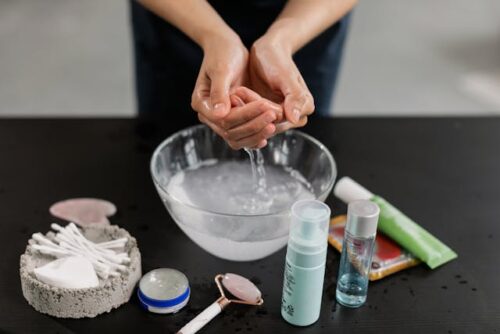
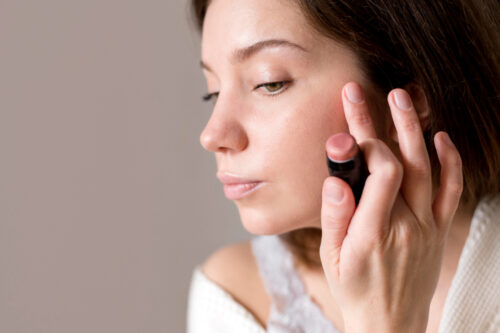
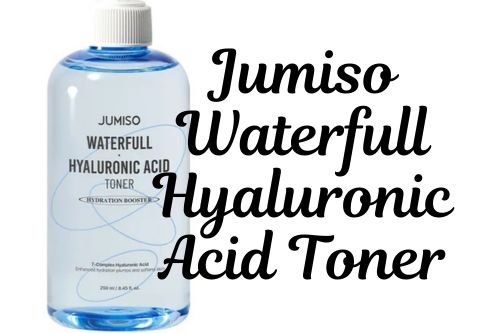
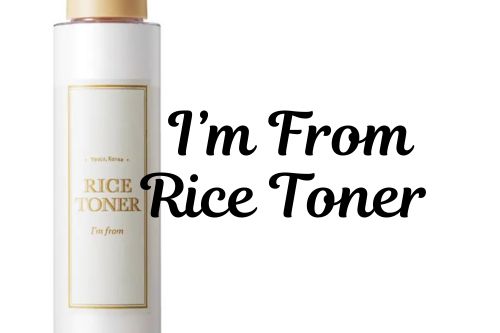


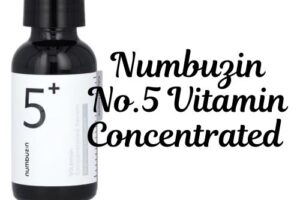
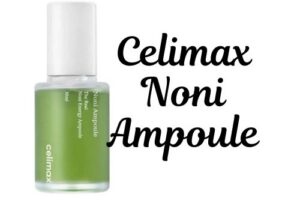
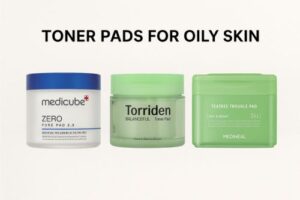

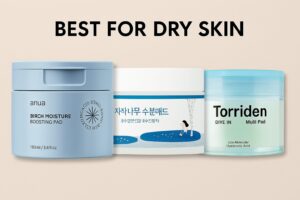

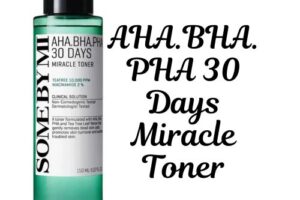
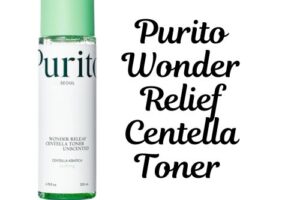
Post Comment